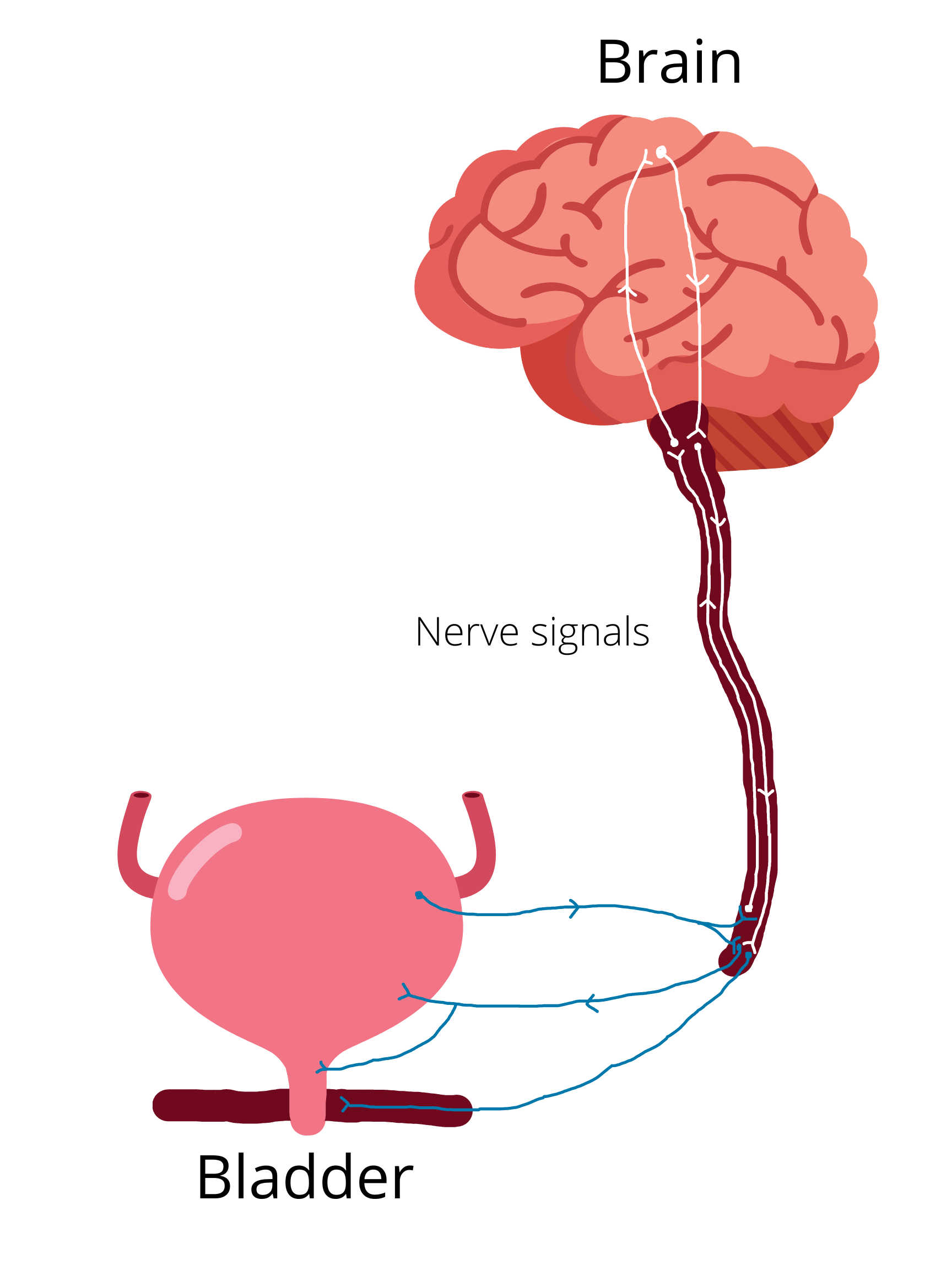What is Urge Urinary Incontinence?
Also known as urge incontinence, it is when you have a sudden and very strong desire to urinate that you cannot delay. Imagine this: you drive home from Costco on a busy Saturday morning and you’re taking your time getting out of the car. However, once you put your key in the house door, you feel a very sudden and urgent need to urinate. You’re now scrambling, rushing to get to the bathroom and even fear that you may not make it. As time goes on, you’re noticing that you are rushing more and more to the bathroom however only a small trickle comes out every time.

What Causes Urge Urinary Incontinence?
The brain and bladder communicate in an intricate manner. When the bladder fills with urine, stretch receptors on the inside lining of the bladder are activated, which signals your brain that you need to urinate. If you repeatedly start rushing to the bathroom, every time you get the smallest urge to urinate, this tells the brain “I need to go, I need to go!”. This is a cycle that self-enforces further urgency. When you are rushing and in a state of panic, it becomes more difficult to control your pelvic floor muscles and leaking can occur.
Since the bladder sits directly on top of your pelvic floor muscles, they are very closely related. What feels like a “small” bladder, may actually be related to increased tension in your pelvic floor muscles. Alternatively, you may have some weakness in your pelvic floor muscles, proving difficult to support the weight of a full bladder.

Top 4 ways to improve urge urinary incontinence on your own:
How can pelvic floor physiotherapy help?
By completing an assessment with an experienced physiotherapist with specialized training in the pelvic floor, we can help provide:
- A diagnosis to determine factors contributing to your symptoms
- Treatment to improve your pelvic floor function
- Insight into your specific bladder triggers
- Education on techniques to combat your specific triggers



